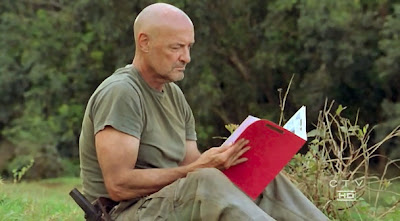If you want to be successful you need to go to college. Without a college degree you’re destined to work at an unsatisfying, low paying job the rest of your life and will never be able to live the American Dream.
Does that advice sound familiar? It should.
That’s the mantra of success preached from the time our children enter school. They’re told that a college education will be the best investment they can ever make. Educators tell them if they don’t have a college degree, they’ll end up digging ditches or performing other menial jobs and live in poverty and misery for the rest of their lives.
Parents reinforce this message by prodding their children to get good grades so a university will give them a scholarship. Popular entertainment depicts numerous stories of a brilliant kid growing up in a working class neighborhood with less-than-successful parents who tell their kid the only way out of the hell hole is to go to college.
The problem with this assumption is that it’s wrong.
A college degree does not ensure that anyone will be successful or have a comfortable lifestyle. Conversely the absence of a degree does not mean that one is destined to low-paying, menial work. Yet the importance of a college education has been drilled in our heads often enough that seven out of ten high school students will enroll in college not because it’s in their best interest to do so, but because they’ve been told (and in some cases pressured) by parents, educators, and councilors that college is the only way to obtain the American Dream.
This advice is often backed up with the statistics that show that college graduates earn more over their lifetime than their non-college counterparts. Pope Center Researcher George Leef notes in The Overselling of Higher Education, such statistics are not only misleading but assume that those without college degrees would secure better, higher-paying employment if they obtained a college degree. Leef writes:
Instead of looking at average earnings for each group – which inflates the earnings of the college-educated by including many fabulously wealthy professionals and business executives, while depressing the earnings of those without college degrees by including many individual who are scarcely literate – it is more sensible to focus on the workers at the margin. The right question to ask is this: For high school graduates who might have gone to college but did not, is it the case that their earnings would be significantly higher if they had instead enrolled in college?
Leef concludes that students who decide not to attend college are better off not going because they can hone their skills in a non-college environment as opposed to wasting their time doing things such as studying or writing papers when their interests do not lie in that direction.
Even among those with college degrees a well-paying, satisfying job never materializes. Again Leef writes that many college graduates find themselves with no marketable skills upon graduation and only marginally employed.
Services must be rendered. Some of those jobs demand a high degree of knowledge and skill, but most don’t. With burgeoning numbers of college graduates, we should not be surprised to find that many of them – especially those who obtained easy, low-effort degrees in soft subjects – can do no better in the job market than delivering pizza, selling coffee, or taking theater tickets.
No doubt many of these people are disillusioned after being told that their college degree was their ticket to success.
Not everyone is college material. This isn’t a bad thing. Just because someone opts not to attend college doesn’t mean they’re stupid or unable to become successful. Yet we tend to look down upon those who haven’t jumped through enough hoops to obtain a college degree. Someone may be able to understand the complexities of an automobile and quickly diagnose and fix the problem but because they have a technical certificate rather than a college diploma, we don’t view them as intelligent or successful as someone who works in a small cubicle staring at a computer screen all day.
This condescending view of some professions has led to the gradual decline in interest in technical training and a void in such professions as auto and aviation mechanics, electronics, and trades such as construction.
Fortunately, vocational schools and other training have received somewhat of a resurgence in popularity. And they’re focusing on more forward-looking careers than their traditional wood or metal shop days. Technical education can now provide careers in high demand and specialized fields like robotics, 3-D animation, and industrial maintenance technology.
Many of these jobs pay very well. The Christian Science Monitor tells the story of a savvy student who pursued specialized computer classes in high school and landed a $52,000 a year after graduation. The student is doing something that he loves and being paid well to do it. No college degree required.
We do our children a profound a disservice when we reflexively assume that college is the only way to achieve success. Rather, parents and educators should help children and students focus on their interests, talents, and unique abilities in order to decide what kind of post-high school education would be most beneficial. College is a good path for many people, but others would be much better off attending a vocational school, learning a trade, or starting their own business.
Continually obtaining knowledge and skills are important and necessary to do what we love with our lives and to provide for ourselves and families – if we have them. But assuming the only way to obtain success is through college merely encourages many young adults to waste years of their life pursuing something that will ultimately be of no benefit to them.

 Â
 


 Â
Â